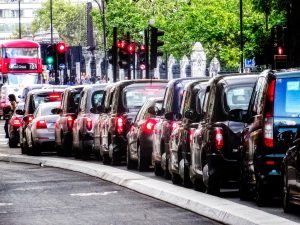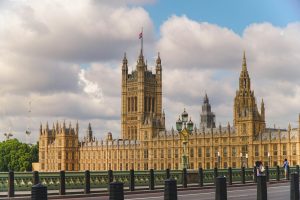Today is the Second Reading of the Government’s Domestic Gas and Electricity (Tariff Cap) Bill. [1] As its name suggests, the bill will introduce an upper limit on what retail energy companies can charge for standard variable and default tariffs. The fact that the Government is doing this emphasises how political the issue of energy prices has become. Unless the political pressure goes away this may not be the last intervention in the energy market. Other parts of the energy industry, such as energy networks, need to be aware of this and take steps to ensure policymaking towards them is well informed.
There are limited options for more action against energy suppliers.
There are limits to the actions government can take on energy suppliers to try and reduce domestic energy bills. Once government introduces the price cap, it will be left with solutions like facilitating faster switching. However, these solutions are likely to have a more gradual impact compared to direct intervention like regulating prices. If the Government is looking for other areas to target for a more immediate effect, it may look at network costs. These make up 26 per cent of a dual fuel bill, 24.5 per cent of a gas bill and 27.6 per cent of an electricity bill.[2]
Politicans are turning their attention to energy networks.
There are signs that politicians are starting to think that cutting network costs will bring down domestic bills. At the last Business, Energy and Industrial Strategy oral questions John Penrose MP, who has campaigned for an energy price cap [3], stated that: ‘Energy distribution network operators charge obscenely high prices on our energy bills and make absurdly large profits for running safe, low-risk monopoly businesses that get energy to our homes.’ [4] He also called on the Business Secretary, Greg Clark MP, to support him in challenging Ofgem to take a tougher stance towards the next price control. Clark replied he was ‘absolutely right, and in the next price control period, Ofgem should have a much tougher regime.’ [5] The Business, Energy and Industrial Strategy Select Committee has also welcomed Ofgem’s announcement that energy networks should prepare for tougher price controls in the next phase, and stated it may look into network costs. [6]
Network companies need to act now to inform policymaking.
With politicians beginning to question whether savings on bills could be made by cutting network costs, networks need to engage with policymakers to shape the debate. If energy network companies do not begin a dialogue with government, opposition and civil servants on this issue, they could be surprised by the direction policy towards them takes.
[1] House of Commons, Order Paper No.102: Part 1, 6 March 2018, link
[2] Ofgem, Infographic: Bills, prices and profits, 28 February 2018, link
[3] Telegraph, 19 August 2017, link
[4] John Penrose MP, Hansard, 30 January 2018, col. 672, link
[5] Greg Clark MP, Hansard, 30 January 2018, col. 672, link
[6] Business, Energy and Industrial Strategy Select Committee, Pre-legislative scrutiny of the draft Domestic Gas and Electricity (Tariff Cap) Bill, 26 February 2018, p.12, link



